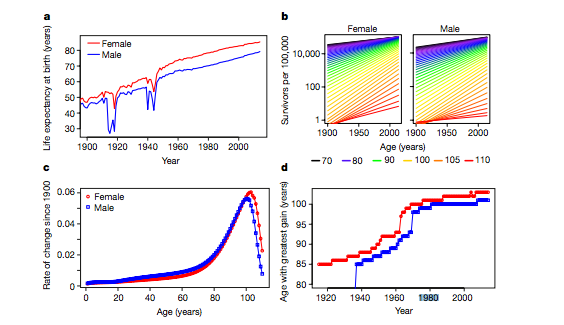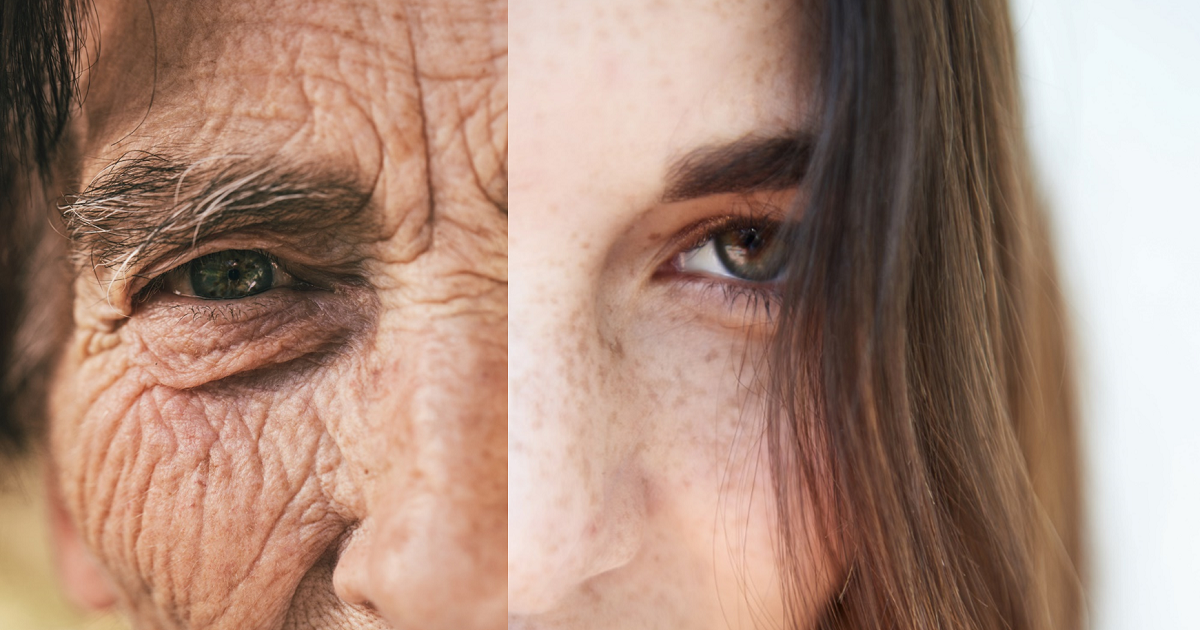Scientists Discovered the Maximum Age Humans Can Live To

By:
Old people just keep getting older — at least in the sense that human life expectancy has increased significantly since the 19th century. But that doesn't necessarily mean that peoples' lives will continue to lengthen.
In a study published on Wednesday in the journal Nature, researchers identified a likely maximum human lifespan — and claimed that we've already reached it.
“It seems highly likely we have reached our ceiling,” molecular geneticist and lead author Jan Vijg told the New York Times. “From now on, this is it. Humans will never get older than 115.”
The oldest reported age of death is 122 years, and this lifespan was achieved by a woman named Jeanne Louise Calment, who died in 1997. (Before Calmet passed, she married her cousin, bicycled often, and once called Vincent Van Gogh "ugly" and impolite" after glimpsing him on the street as a young child, the New York Times reported.)
After delving into mortality and population data from the Human Mortality Database and the International Database on Longevity, Vijg, a professor at the Albert Einstein College of Medicine's Department of Genetics, and his co-authors determined that survival rates stopped improving around 1980, hitting a plateau. They concluded that human life has a natural limits that medical advances won't be able to prolong.
 Nature - nature.com
Nature - nature.com
The biological reasons lives won't keep getting longer.
The reason human lifespans are fixed is genetic, the study explains. The authors assert that longevity is a species-specific genetic trait. Those who live extraordinarily long lives — like Calmet — are exceptions, outliers to the statistical model.
 Stocksy/Guille Faingold - stocksy.com
Stocksy/Guille Faingold - stocksy.com
“When you look at the second-oldest person — and the third and the fourth and the fifth — the trend is always the same,” Vijg told the Times.
While 115 may not ever be the new 60, medical experts are working to combat many issues that contribute to truncated lifespans and worsen human health with age.
“There’s a good chance to improve health span — that’s the most important thing,” Vijg told the Times.
University of Chicago Sociologist and gerontologist S. Jay Olshansky spoke to Gizmodo about the study's findings and came to a similar conclusion. He stressed that we should work to improve health disparities linked to mortality rates rather than search for medical or technological fountains of youth.
“These researchers suggest that we will get diminishing returns from these efforts because we’re butting up against a limit,” Olshansky told Gizmodo. “Having said that, it doesn’t mean that further progress isn’t possible. To the contrary, there is still plenty of low hanging fruit available to extend life—this comes from reducing harmful behavioral risk factors such as smoking and obesity, and reducing disparities.”
